The Renault Nissan and Mitsubishi alliance has revealed plans for 35 electric cars in 2030 following investment of 23 billion euros during the next five years in common platforms, connected mobility and pure electric powertrains.
It hopes to have 80% of all its 90 models on common platforms from 2026, and a common battery strategy aimed to secure a global 220 giggawatt-hour production capacity by 2030.
Nissan will lead the development of all-solid-state battery technology for all three carmakers, while Renault will lead development of common centralised electrical and electronic architecture.
The Renault Nissan and Mitsubishi alliance has revealed plans for 35 electric cars in 2030 following investment of 23 billion euros during the next five years in common platforms, connected mobility and pure electric powertrains.
It hopes to have 80% of all its 90 models on common platforms from 2026, and a common battery strategy aimed to secure a global 220 giggawatt-hour production capacity by 2030.
Nissan will lead the development of all-solid-state battery technology for all three carmakers, while Renault will lead development of common centralised electrical and electronic architecture.
Based on five common EV platforms, the alliance says it will have 35 electric cars from 2030.
In Europe Nissan, which said last November it will have 15 EVs by the end of the decade, will replace the Micra with a new EV based on the CMF-BEV alliance platform which will be launched in 2024, shared with the Renault R5, and built in France.
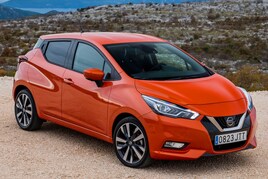 “Among the world's automotive leaders, the Renault-Nissan-Mitsubishi Alliance is a proven, unique model. For 22 years, we have been building on our respective cultures and strengths for our common benefit,” said Jean-Dominique Senard, chairman of the alliance.
“Among the world's automotive leaders, the Renault-Nissan-Mitsubishi Alliance is a proven, unique model. For 22 years, we have been building on our respective cultures and strengths for our common benefit,” said Jean-Dominique Senard, chairman of the alliance.
“Today the alliance is accelerating to lead the mobility revolution and deliver more value to customers, our people, our shareholders and all our stakeholders.
"The three member-companies have defined a common roadmap towards 2030, sharing investments in future electrification and connectivity projects. These are massive investments that none of the three companies could make alone.
"Together, we are making the difference for a new and global sustainable future; the alliance becoming carbon neutral by 2050.”
The five platforms are:
- CMF-AEV, which the alliance says will be the most affordable platform in the world, is the base for the new Dacia Spring.
- KEI-EV (mini vehicle) platform family for ultra-compact EVs.
- LCV-EV Family platform family for professional customers, as the base for the Renault Kangoo and Nissan Town Star.
- CMF-EV, the global, flexible, EV platform. It will be on the roads in a few weeks as the base for the Nissan Ariya EV crossover and Renault Megane E-Tech Electric. The CMF-EV platform, with its technological innovations and the potential offered by its modularity, is a benchmark platform for a new generation of electric vehicles for the Alliance partners. The platform has been created to integrate and optimise all the elements specific to a 100% electric powertrain, hosting a new, high-performance motor and an ultra-thin battery. By 2030, more than 15 models will be based on the CMF-EV platform, with up to 1.5 million cars produced on this platform per year.
- CMF-BEV, the most competitive compact electric platform in the world, to be launched in 2024. It provides up to 400 km range; its aerodynamics performances are outstanding, helping reduce cost by 33% and power consumption by more than 10% compared to the current Renault ZOE. It will be the base for 250,000 vehicles a year under the Renault, Alpine and Nissan brands. Among the vehicles are the Renault R5 and the new compact EV that will replace the Nissan Micra. Designed by Nissan and engineered by Renault, the new model is planned to be manufactured at Renault ElectriCity: the electric industrial center in Northern France.
Login to continue reading
Or register with AM-online to keep up to date with the latest UK automotive retail industry news and insight.






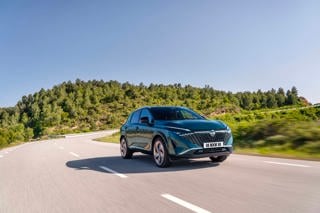
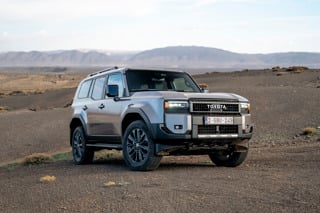

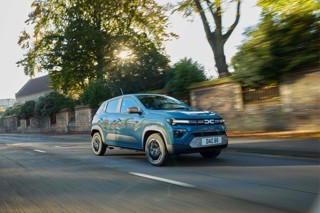
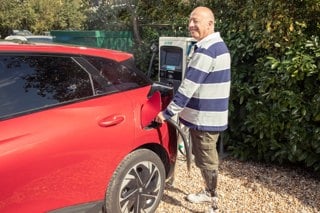












Login to comment
Comments
No comments have been made yet.